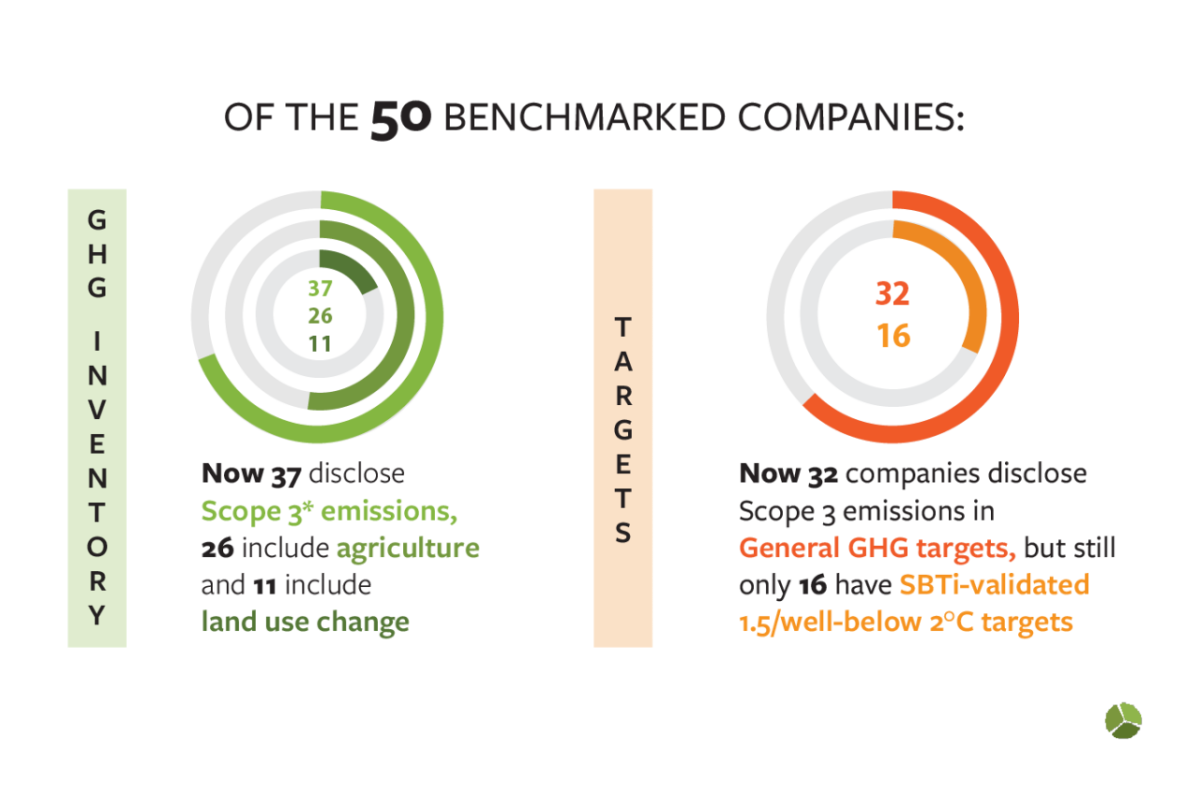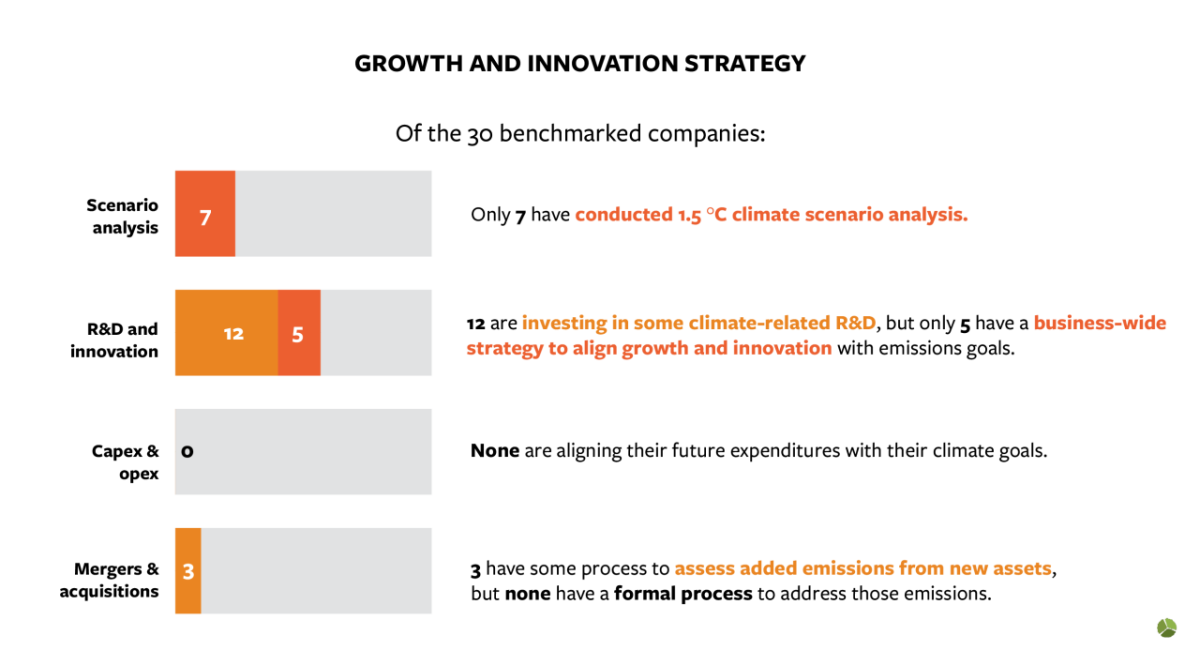Food Sector Makes Measured Progress Toward Aligning With a Net Zero Economy, but More Urgent Action Needed
Published 02-23-24
Submitted by Ceres

- Food Emissions 50 Company Benchmark found 37 companies have disclosed supply chain emissions and 32 have set emission reduction targets that include scope 3
- The first benchmarked company engaged in Food Emissions 50 reported a quantified climate transition plan on how it will achieve its emission reductions goals
February 23, 2024 /CSRwire/ - A new Ceres analysis of major North American food companies found that the sector, which accounts for one-third of global greenhouse gas emissions, is making measured progress toward aligning with and accelerating the transition to a net zero emissions economy.
Ceres’ Food Emissions 50 Company Benchmark revealed that 37 out of the 50 companies engaged through its Food Emissions 50 initiative have reported their supply chain greenhouse gas emissions and 32 of them have set targets to reduce those emissions – two critical actions that should be the basis of an effective climate transition plan. Many of the companies are also reporting more key elements of effective strategies for reducing emissions in the food sector, including one company that has quantified how it will achieve its emissions reductions goals.
In 2021, when the Food Emissions 50 initiative was launched, only a few companies disclosed scope 3 emissions from their supply chain and corresponding 1.5°C-aligned science-based targets.
“It is encouraging to see that the food sector is making progress, but more urgent and ambitious action is needed, and investors will be looking for companies to address the large gaps that remain,” said Meryl Richards, program director of food and forests at Ceres. “As more companies set targets to reduce their emissions, it is critical that they also disclose how they will transition their businesses to align with a net zero future. Without climate transition plans that chart the actions companies will take to reduce their emissions, it is likely that companies will fall short of their goals.”
New benchmark highlights sector trends in climate transition plans
The benchmark also revealed notable trends of where food companies are making progress on transition planning and where opportunities for more action remain. When Ceres did an initial analysis of climate transition plans in May 2023, no Food Emissions 50 company had disclosed how its business-wide emissions reduction efforts will allow it to reach its climate goals. This year, Ceres found Yum! Brands has followed other major food companies, such as Nestlé and Mars, in publishing a quantified plan that identifies the percentage of their emissions targets they expect to achieve by implementing various actions across their operations and supply chain.
Business momentum to publish climate transition plans has been spurred by an increased awareness of escalating climate and nature risks, new disclosure regulations being adopted in countries across the globe, and consumer demand for climate-friendly products, along with pressure from investors seeking more information. After a shareholder resolution received significant support, Darden Restaurants, for instance, disclosed its full scope 3 emissions for the first time in October 2023.

“Even if not perfect, food companies must quantify a climate strategy because doing so helps external stakeholders hold companies accountable for reducing emissions in line with their estimates and allows the company to assess and adjust progress toward meeting its larger emissions targets,” added Nako Kobayashi, Food Emissions 50 manager, food and forests, at Ceres. “As we near 2030, companies must demonstrate actions they are taking to rapidly reduce their emissions to stay on track, or in some cases get back on track, to achieving their goals.”
Another finding from the benchmark is that more companies are disclosing the main drivers of their scope 3 emissions from purchased goods and services and how they plan to address them – a crucial step since the supply chain is responsible for 70-80% of food sector emissions. For example, Kraft Heinz is more clearly identifying that a major driver of its GHG emissions are methane emissions from dairy and meat products, which the company plans to address through efforts like joining General Mills and other global companies as co-founding members of the Dairy Methane Action Alliance.
Ceres’ latest benchmark also sheds insight into a crucial area of opportunity for food companies – their forward-looking business growth and innovation strategy. As Ceres outlined in a recent report, food companies will have to leverage both existing agricultural practices and accelerate emerging technologies to reduce on-farm emissions enough to reach climate goals. While more Food Emissions 50 companies are now conducting analyses to assess the risks and opportunities in a transition to a 1.5°C scenario, they are largely not making progress on taking actions to mitigate impacts and capitalize on those business opportunities.
In addition, the benchmark found food retailers continue to lag the sector in acting on their emissions, with only four of 12 retailers disclosing supply chain emissions and setting targets to reduce them. However, a few major retailers reported certain climate transition plan elements for the first time, including Costco’s disclosure of its scope 3 emissions from purchased goods and services.
See the full results of Ceres’ latest Food Emissions 50 Company Benchmark here.
Food Emissions 50 is an investor-led initiative to accelerate progress towards a 1.5-degree future in the food sector and is a part of Ceres' Ambition 2030, an initiative that works to decarbonize six of the highest-emitting sectors and help build a stable, just, and climate-resilient economy.

About Ceres
Ceres is a nonprofit organization working with the most influential capital market leaders to solve the world’s greatest sustainability challenges. Through our powerful networks and global collaborations of investors, companies, and nonprofits, we drive action and inspire equitable market-based and policy solutions throughout the economy to build a just and sustainable future. For more information, visit ceres.org and follow @CeresNews.
Media Contact: Bridget Vis, vis@ceres.org

Ceres
Ceres
Ceres is a nonprofit advocacy organization working to accelerate the transition to a cleaner, more just, and sustainable world. United under a shared vision, our powerful networks of investors and companies are proving sustainability is the bottom line—changing markets and sectors from the inside out.
For more information, visit ceres.org and follow @CeresNews.
More from Ceres

